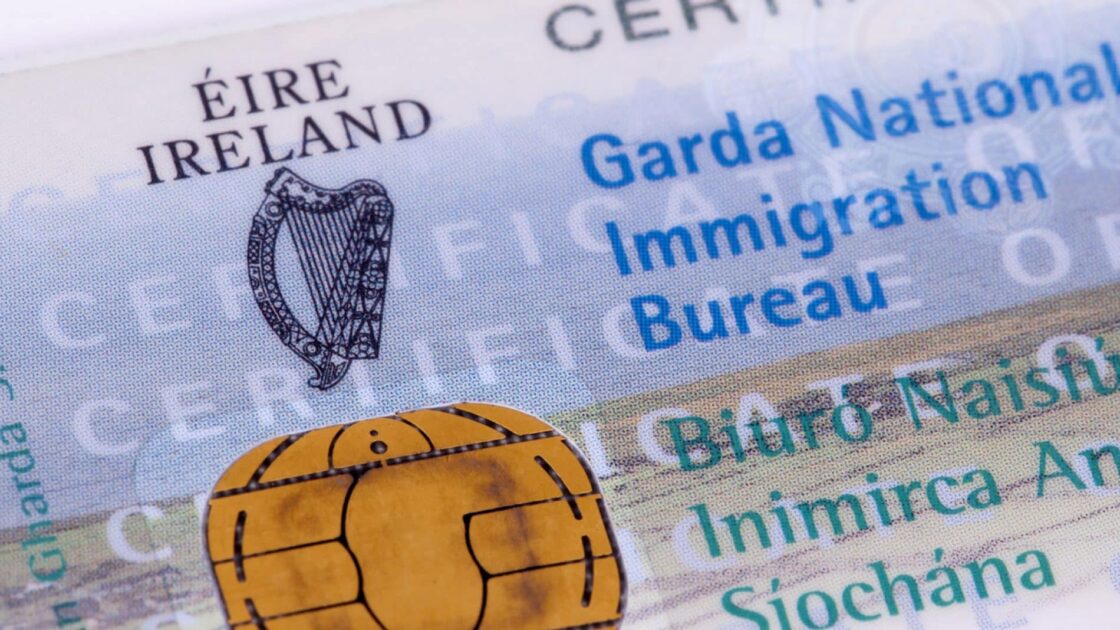Regularisation scheme for people seeking asylum in Ireland
This scheme allows some people seeking asylum in the International Protection process to apply for legal residence in Ireland.

The Government has introduced a scheme that allows some International Protection applicants to apply for legal residence in Ireland. This opportunity will be available to International Protection applicants who have not yet received a final negative decision with respect to their application. There is a separate strand, with a separate application process, for long-term undocumented people, who have been undocumented for 4 years or more (or 3 years in the case of individuals with minor children).
Before you apply, it’s important to make sure you have all of your documents and to check that you are definitely eligible for the scheme.
The International Protection Strand of this scheme will close on 7 August 2022. You must apply before this date.
The strand for long-term undocumented migrants is open until until 31 July 2022. Find out about applying for the undocumented migrants strand.
Eligibility for the International Protection strand
International Protection applicants who have been in the asylum process for a minimum of two years can apply for the International Protection strand, as long as they continue to await their final decision from the Ministerial Decisions Unit.
There are many support organisations who can offer advice and support – find details at the end of this page.
To qualify, you must be:
- A current International Protection applicant
- In the International Protection Process for at least 2 years before 7 February 2022
- Issued with a Temporary Residence Card
- Living continuously in Ireland during your International Protection application
- Have not left the country for more than 60 days during your International Protection application on one occasion
- Of “good character” and have no criminal record
You cannot apply if:
- You have a live deportation order
- You have received a final negative decision on your International Protection application from the Ministerial Decisions Unit
- You have been issued with an intention to Deport
Application process
To apply for the International Protection strand, you will need to fill out an application form and email it to [email protected].
Information and documentation
This form will ask for details like your name, date of birth, details of your Temporary Residence Card, and information on how long you have lived in Ireland. To qualify, you need to have been continuously living in Ireland for at least two years.
If you have been living in Direct Provision, the Department will be able to access some information on your residence history from the centre. However, you can provide documentation (letters demonstrating your address), if you wish.
If you have not been living in Direct Provision, you will need to provide documentation to prove how long you have been living in Ireland. You can find a full list of documentation on the FAQ sheet.
eVetting
As part of the application process, you will have to go through an eVetting process, which means checks will be carried out to make sure you have no criminal record, that you are of “good character”, and you have not been involved in any criminal activity.
Can I submit a family application?
It is not possible to submit a family application in the International Protection strand. An application must be submitted for each individual who are current International Protection applicants.
Fee
If you are in the International Protection process, you will not need to pay a fee.
What should I do if I don’t meet the criteria?
If you don’t meet the criteria for this scheme, then your application will be refused. Find out more about what you can do if your application is refused below.
It is recommended that you contact a support organisation before applying if you have any doubts over your eligibility. Find a list of support organisations at the end of this page.
What happens if my application is approved?
If your application is approved, you will receive a letter granting you permission to stay in Ireland for two years on Stamp 4 conditions, which you can then renew.
You must register your permission with the Irish immigration authorities and be issued your Irish Residence Permit. Currently, children under the age of 16 do not need to register but they will then need to register when they turn 16 years old if they do not already have Irish citizenship.
What can I do with a Stamp 4 Residence Permit?
A Stamp 4 Residence Permit, allows you to:
- Work in any job
- Travel home for a short time and return to Ireland
- Apply for ‘join family’ visas for family members living outside of Ireland. These visas can be difficult to obtain as the sponsor must meet criteria. Find out more.
- Renew your residence permit after two years
- Your residence period can count towards the required period of residence to be eligible to apply for Irish citizenship
Should I continue with my protection application if I am approved for the scheme?
If you are approved for the regularisation scheme, you can continue your protection application if you wish. This would be particularly important for adults who wish to apply for family reunification for spouses or children, or minors who wish to apply for minor siblings and parents, as there is no right to family reunification under the regularisation programme.
There may also be differences regarding entitlement to a travel document and the length of time it takes to qualify for citizenship.
What happens if my application is refused?
If you are refused, you will receive a letter outlining why this decision was made. Your application could be refused because:
- You did not meet all of the criteria
- You didn’t provide enough information or there were inconsistencies in the information you provided
- There was false or misleading information provided
If you believe your application should have been accepted, you can appeal the decision.
How to appeal the decision
If you want to appeal, you must do this within 30 days of your application being refused. You can lodge your appeal through the Immigration Service portal.
If your appeal is successful, you will receive a letter granting you permission to stay in Ireland. You can then follow the steps above.
If your appeal is unsuccessful but you are still in the process of your application for International Protection, that application will still be processed even if you are refused for this scheme.
Who can I go to for help with this scheme?
Some people may be feeling nervous about applying for this scheme. If you fulfil all of the criteria, it is safe to apply. There are a number of organisations who can offer advice and support to those interested in applying.
Irish Refugee Council
The Irish Refugee Council provides services and support for people seeking protection and people recognised as refugees in Ireland. They offer an email and phone support line where you can access information and an independent law centre where you can get free legal advice and aid.
Immigrant Council of Ireland
The Immigrant Council of Ireland has a helpline where you can ask questions and be supported with the application process. The staff may be able to assist you to make an application or refer you internally to the Law Centre if that is necessary.
Nasc, the Migrant and Refugee Rights Centre
Nasc works with migrants and refugees to help them understand their rights. If you have questions about this regularisation scheme, you can contact the NASC Advocacy service.
Free Legal Advice and Care (FLAC)
The FLAC Helpline is there to answer questions and provide basic legal information to the public. If you have questions about the scheme, FLAC may be able to offer information.






